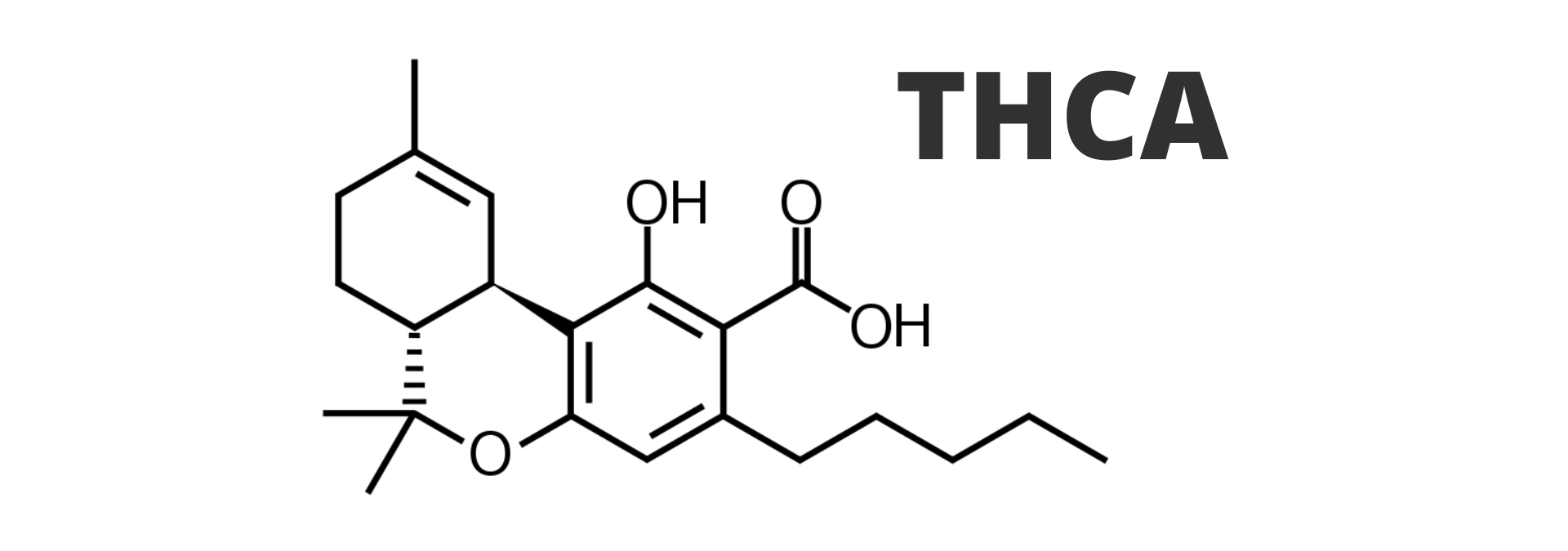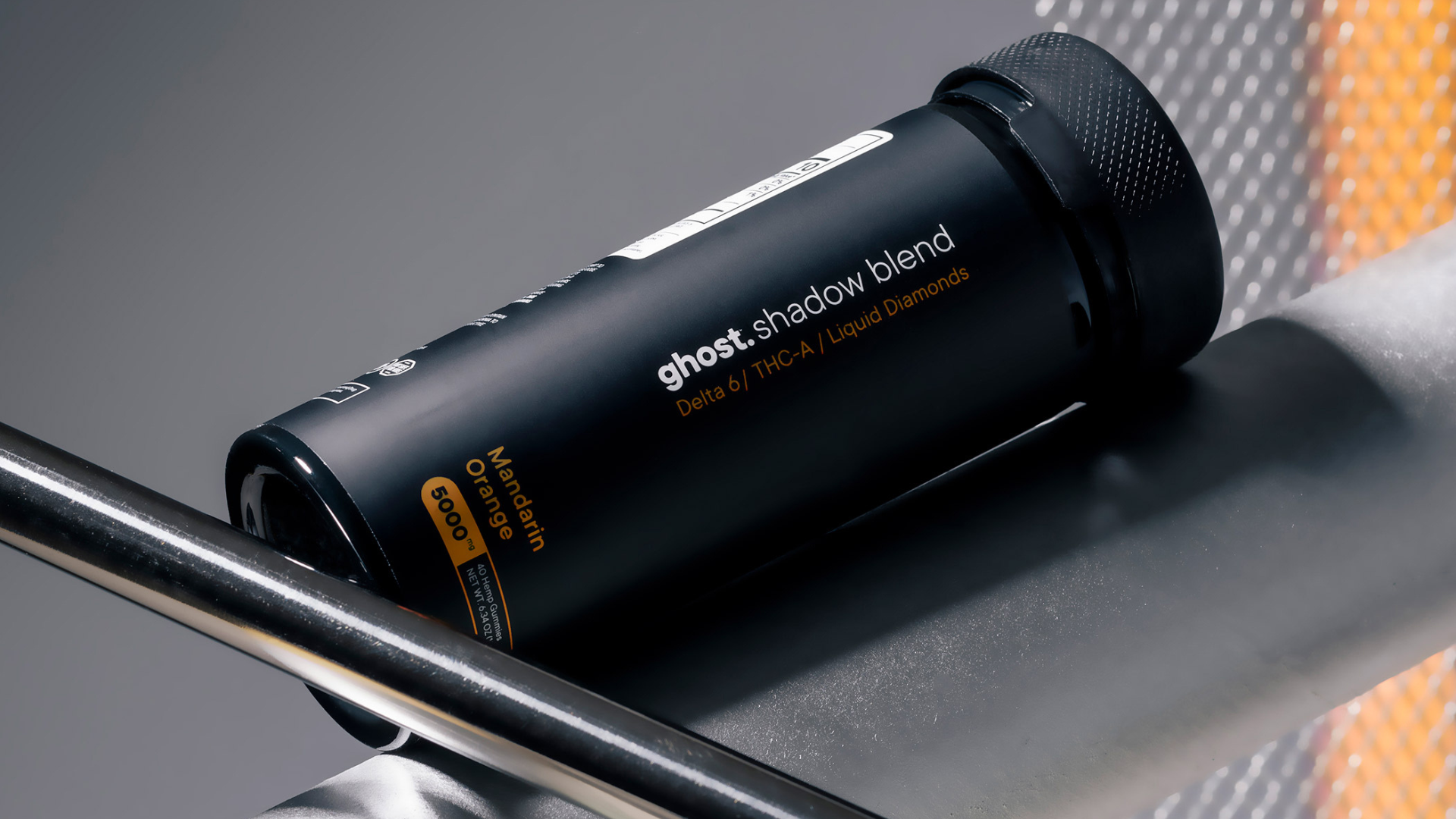Whenever you hear about the strongest cannabinoids, THC-P or THC-A are usually mentioned. However, many enthusiasts are left wondering if THC-P is better than THC-A. We explore these unique cannabinoids and break down their similarities and differences.

THC-P, or Delta-9-Tetrahydrocannabiphorol, is a lesser-known cannabinoid found in Hemp but in small amounts. What makes THC-P unique is its long chain of carbon atoms. Normal forms of THC have a pentyl chain – about five carbon atoms, whereas THC-P has a heptyl chain holding seven carbon atoms.
This results in a stronger binding affinity to CB1 receptors. The CB1 receptor is a cannabinoid receptor in the central nervous system. So, the fact that THC-P binds stronger to this receptor means you feel the potency of this cannabinoid when consumed.
What makes THC-P so sought after is its potency – which is said to be 33% more than regular THC. However, that doesn’t mean that this cannabinoid will give you a head change 33 times stronger. A couple of things to take into account is our Endocannabinoid System (ECS), which regulates how we react to THC.
For some, the experience can be intense, but it is not so much for someone with a higher tolerance. Also, you need to keep in mind that most THC-P products are sold in a blend. Therefore, there’s no real way of knowing how potent it is because blends are usually well-balanced.
As of now, THC-P is the strongest cannabinoid if we’re only referring to its chemical structure. However, because it’s very potent, only a tiny amount is required for an enjoyable experience. Otherwise, too much of it alone can cause unwanted side effects.
For this reason, you won’t find just one product with THC-P alone. Manufacturers add it to a blend of Delta 8, Delta 9, etc, to increase its potency. However, don’t be alarmed if you read the labs, which are only a tiny amount. You can rest assured that it’s for your safety.

THCA, or tetrahydrocannabinol acid, is the acid form of THC. The THC-A in our products is extracted from Hemp, and when activated through a process called decarboxylation, it turns into THC. However, what’s important to note is that before being activated, THC-A cannot cause a head change.
This means that before being consumed, it flies low under the radar. When we break down its chemistry, we see that THC-A contains a carboxylic acid group (COOH) attached to its molecular structure. The carboxylic acid group prevents it from providing the experience you get from activated THC.
When subjected to heat, like when smoking, vaping, or cooking, THCA goes through decarboxylation, changing into THC. This change boosts the compound and is what causes it to go from THC-A to regular THC.
Therefore, THC-A adds that extra kick, like in our Spirit Blend 3.5g All-In-One collection. You’ll discover that it’s very similar to cannabis but with a less intense experience. However, because it can turn into regular THC, its popularity has skyrocketed.
Now that you have a better understanding of both cannabinoids, we’ll compare how similar THC-P is to THC-A and the differences. Also, you’ll discover if one is better than the other.
One of the most notable similarities is that they’re both extracted from Hemp, not cannabis. Both cannabinoids are classified as Hemp-derived because of the type of plant they were extracted from. Also, because they’re both unique in their own right, you’ll find them in blends of cannabinoids.
When 2 or more cannabinoids are present in a product, it produces what is known as the Entourage Effect. It’s the idea that combining cannabinoids will create a whole new experience for its users. Think of it as mixing all the fountain drinks at the soda dispensary; you’re now getting a bunch of new flavors, and the experience is completely different.
The most significant difference is in its chemicals. As stated before, THC-P has a longer carbon chain than most cannabinoids, while THC-A has a carboxylic acid group. This means that THC-P is extremely potent on its own, while THC-A is not potent at all until it’s activated.
However, just because THC-P is very potent doesn’t mean that it’s better than THC-A. The downside of all that potency is that you can’t enjoy too much of it. On the contrary, THC-A has the right amount of potency, which creates a familiar and comfortable experience.

The biggest question you might be left with is if THC-P is better than THC-A. In terms of potency, one does outweigh the other; however, when it comes to popularity and how much of it you can enjoy at a time, THC-A does come out on top. It’s not fair to say one is better than the other, but what does hold is that they both serve a purpose in the world of THC.
FDA DISCLAIMER: This product is not for use by or sale to persons under the age of 18 or 21 depending on the laws of your governing state or territory. The statements made regarding these products have not been evaluated by the Food and Drug Administration. The efficacy of these products has not been confirmed by the FDA-approved research. These products are not intended to diagnose, treat, cure or prevent any disease. All information from health care practitioners. Please consult your health care professional about potential interactions or other possible complications before using any product. The Federal Food, Drug, and Cosmetic Act requires this notice. By using this site you agree to follow the Privacy Policy and all Terms & Conditions printed on this site. Void Where Prohibited By Law. Disclaimer: We will not ship any of our products to states where Delta 8 is illegal. THC DISCLAIMER: All products on this site are 2018 Farm Bill Compliant and contain 0.3% or less of Delta 9 THC (Δ9-THC). THC-A Disclaimer: We do not ship THCa products to the following states where THCa is restricted or illegal: Alaska, Arkansas, Colorado, Delaware, Hawaii, Idaho, Iowa, Minnesota, Montana, Nevada, New Hampshire, New York, North Dakota, Oregon, Rhode Island, South Dakota, Utah, Vermont, Washington.